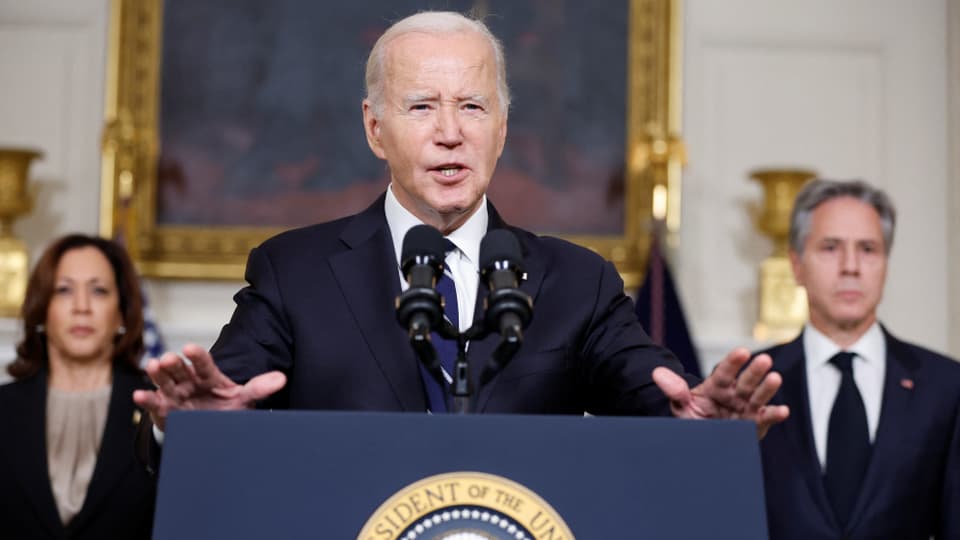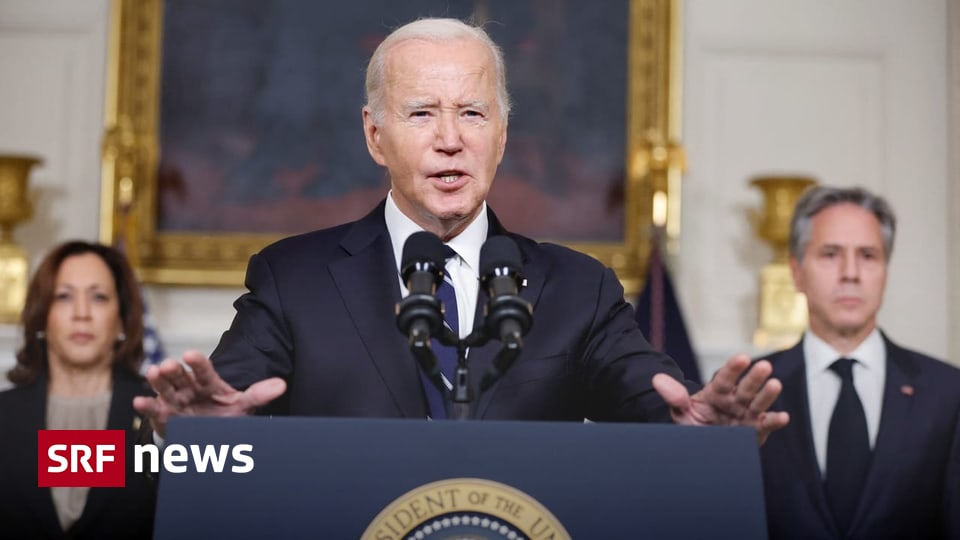As Israel’s strongest ally, the United States has a decisive influence on events in the Middle East. Pascal Weber, a former Middle East correspondent and current correspondent in Washington, assesses the extent to which their Middle East policy is partly responsible for the escalation in the Middle East.
What is the responsibility of the United States for what is happening in the Middle East?
The United States is the most powerful foreign power in the Middle East, is Israel’s strongest ally, has fought wars in Iraq and Afghanistan, and has forces almost everywhere. US foreign policy has shaped the Middle East Since President Roosevelt’s meeting with Saudi King Abdulaziz bin Saud aboard the USS Quincy in the Suez Canal on Valentine’s Day 1945, the Middle East has shaped US policy. The United States automatically bears a great deal of responsibility for what happens in the Middle East.
Recently, the United States wanted to withdraw from the Middle East?
It is a great irony that the United States is withdrawing with such force into the Middle East at the same moment it wanted to withdraw from the Middle East and focus more on China and Eastern Europe. Secretary of State Antony Blinken is currently traveling to Israel, Jordan, Qatar, Saudi Arabia, the United Arab Emirates and Egypt. The American exit strategy from the Middle East has failed miserably.

legend:
“Our determination is clear,” US President Joe Biden assured Israel of US support after the Hamas attack.
Reuters/Jonathan Ernst
What did the United States do wrong?
The United States mistakenly believed that the actual conflict in the Middle East, the conflict between Israelis and Palestinians, was no longer important. Instead, they focused on normalizing relations between Israel and Arab countries, the so-called Abraham Accords. Recently, it seemed that an agreement between Israel and Saudi Arabia was close. If this had been successful, it would have been a great success for the United States.
Could the United States have withdrawn further from the region?
This is the great goal of the Americans. At the same time, they want to prevent their main geopolitical rival China from taking advantage of this. Normalization between Israel and Saudi Arabia would have brought together the United States’ two most important allies in the region in a joint alliance against Iran, and at the same time would have kept Saudi Arabia in Washington’s sphere of influence. With the escalation in Gaza, this normalization strategy is currently off the table.
How high is the pressure in Washington to take tougher action against Iran?n?
The Biden administration is in trouble. It wanted to persuade Iran to take practical steps through relatively limited economic concessions and thus ease tensions. From a Western perspective, it seemed that concessions were in Tehran’s interest. But the regime in Tehran does not work that way. In addition, Iran has established proxy armies with its militias throughout the Middle East, which traditional states and armies cannot control. The Biden administration’s approach has failed and no new ideas have emerged.

“Typical entrepreneur. Lifelong beer expert. Hipster-friendly internet buff. Analyst. Social media enthusiast.”







More Stories
A boy finds a rare Lego octopus from a container that fell into the sea in 1997
SRF News Contest of the Week – News
Temperature and humidity: Kachelman explains the phenomenon